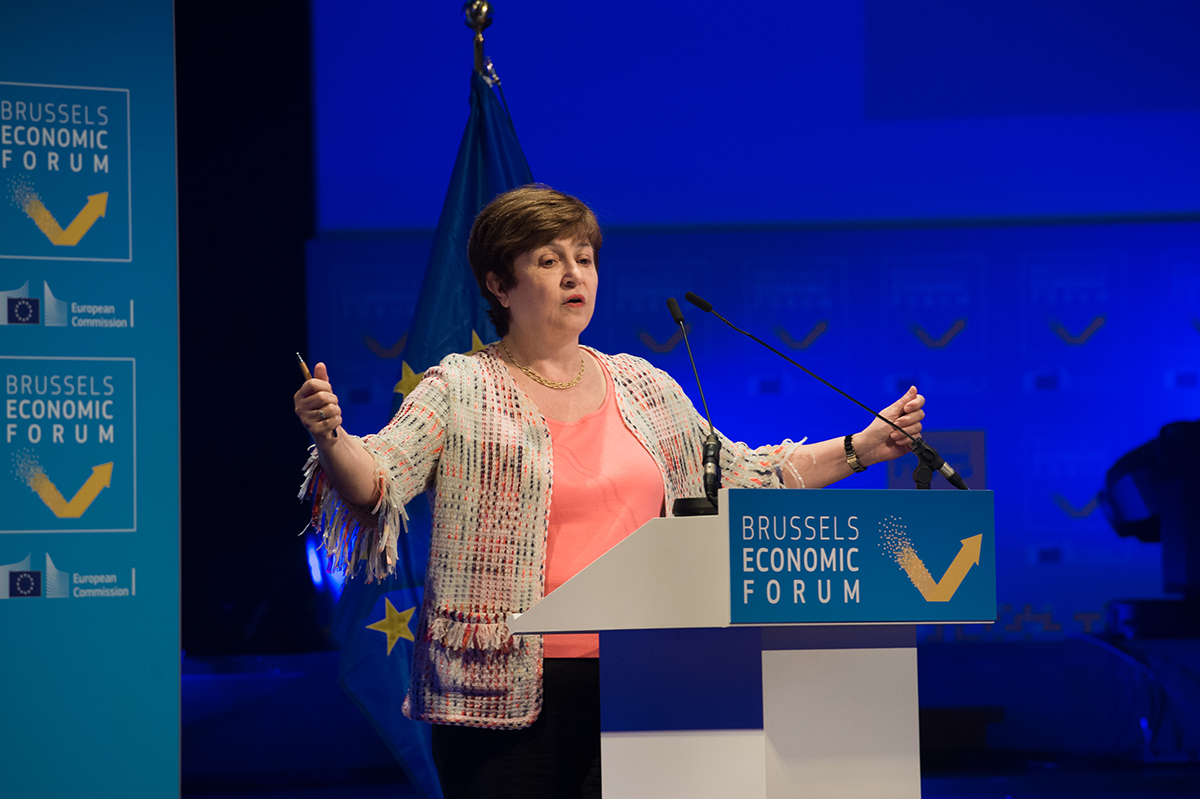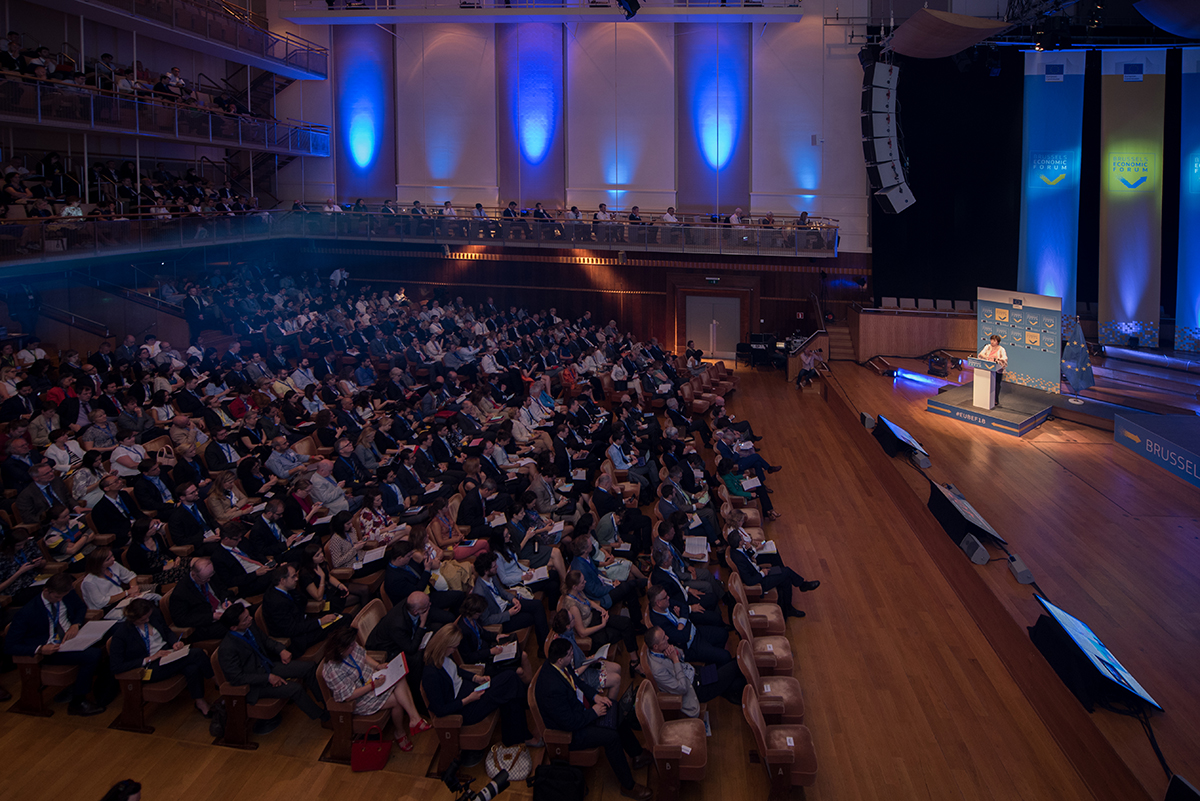EU ‘convergence machine’ needs upgrade to cope with technology change, says World Bank CEO Kristalina Georgieva
Technological advances are disrupting labour markets and undermining the European Union’s efforts to bridge the prosperity gap between its richer and poorer regions, World Bank Chief Executive Officer Kristalina Georgieva, warned at the Brussels Economic Forum.
To ensure technological innovation works for the benefit of all, she urged the EU to upgrade what she termed “the best convergence machine the world has ever seen”. It should do so by investing in its people’s skills, removing inflexible labour market policies and encouraging innovation.
In a keynote speech to Forum, the former Vice-President of the European Commission revealed that digital disruption, and the rapidly changing world it brings, was one of her major concerns. The World Bank has identified technological change as a key factor behind the slowing down of income convergence between the EU’s countries and regions.

This has created a paradox. Technology boosts growth in member states and regions well equipped for change, while it is disruptive where opportunities are few, workers are less skilled and productivity is low. The split is no longer geographical: it is between “the best and the rest” and the gap is widening.
“The European convergence machine is due for an upgrade,” Ms Georgieva said. She offered three areas for action. The first requires investment in people. Alongside its traditional focus on the trio of natural, physical and intangible capital, the World Bank this year measured human capital for the first time.
The results show that two-thirds of a nation’s wealth lies in its people. Priority should be given to raising school attainment levels, the overall quality of education, including skills development, and lifelong learning, Ms Georgieva stressed.
Gender inequality also hinders wealth creation and needs to be tackled. According to estimates by the World Bank, the low participation of women in the labour market and the lower wages they are paid cost the world economy as much as $160 trillion.

The World Bank CEO called for an end to inflexible labour market policies. In a changing world, flexibility is crucial. She urged wider take-up of Denmark’s flexicurity model, where ease of hiring and firing is accompanied by active measures to make people professionally mobile and well developed support systems for those out of work.
Finally, the EU must create conditions to encourage innovation through carefully thought out regulation providing the necessary predictability and flexibility for highly-skilled firms. In this regard, Ms Georgieva welcomed the strong emphasis on innovation, skills and competitiveness proposed in the forthcoming multiannual financial framework.
“I’m actually confident in Europe,” she concluded.
